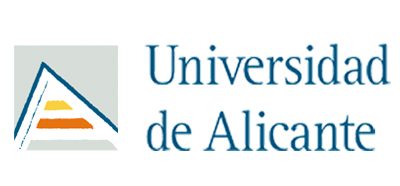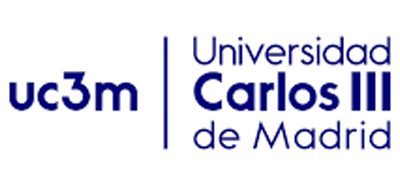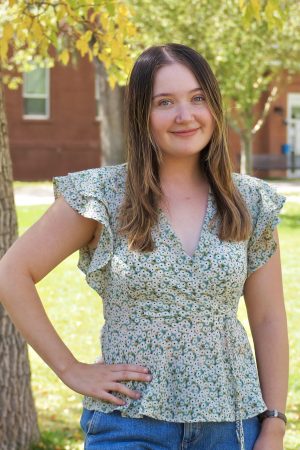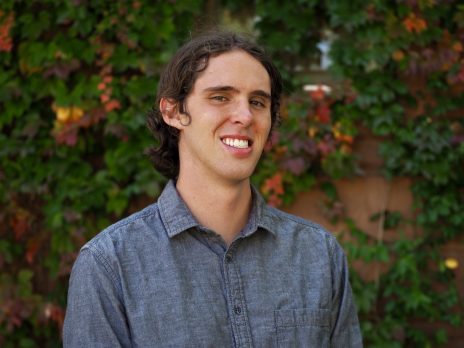Spain
Universidad de Alicante

Established in 1979, the la Universidad de Alicante is one of Spain’s most modern and innovative universities. Heir to the historic rights of the University of Orihuela, whose studies had been suspended in 1834 after two centuries, the University of Alicante has become one of the fastest growing universities in Spain with an enrollment of 33,000 students and 32 degree programs. Every year, approximately 1200 students from all over the world attend the University of Alicante to study Spanish language and culture.
Alicante is suitable for IGP students pursuing degrees in Science or Engineering.
Universidad de Jaén
Universidad de Jaén (UJA) is a medium-sized institution of about 16,000 students. UJA has a long history but now offers over 35 degree programs. The University offers six faculties to choose from including Experimental Sciences, Social Sciences, and Engineering. The campus is located in the northeast of the city and houses a large library, two cafeterias, student residence hall, sports center, travel agency, and a bank branch. In addition to the conveniences offered on campus, there are also beautiful gardens, trees, and lawns. Both campuses are wheelchair accessible.
UJA is suitable for IGP students pursuing degrees in Science, Engineering, or Psychology.
Universidad Carlos III de Madrid

Universidad Carlos III de Madrid (UC3M) is one of Europe’s preeminent public universities, was founded in 1989 and is located on two campuses, Getafe and Leganés. Students studying Social Sciences and Business will study at the Getafe, with Engineering students studying at the Leganés. UC3M offers many degree programs completely in English or at least 50% in English. The campus is located 30-45 minutes from the heart of Madrid.
UC3M is suitable for IGP students pursuing degrees in Engineering or Business.
Map of Spain
Student Blogs
Clarice Linskey Accordion Closed

Blog 1
¡Hola! Me llamo Clarice y estoy estudiando español y biología en Alicante, España.
Hi there! Like I said in Spanish, my name is Clarice and I am studying Spanish and biology at the University of Alicante. In this blog post, I would like to talk about one of IGP’s core competencies: Multilingual Capability. The mission of IGP is: “…to prepare a diverse group of students with the competencies to become global leaders of positive change” (Wheeler, 2020, 0:28, IGP Mission). IGP helps students become intercultural competent leaders. A huge aspect of this process of becoming a global citizen and crossing language barriers is Multilingual Capability: The power and ability to communicate in more than one language across registers and dialects (Wheeler, 2020, 1:43, IGP Mission).
In my experience, Multilingual Capability has already been such an immense part of my experience in Spain. I have been in Alicante since the 21st of August and I have been working toward this competency since I arrived. I am very grateful to my IGP language mentor, Karen Lopez Alonzo, for helping me with any questions I have. I am also very grateful for my NAU Spanish teachers. Speaking Spanish here every day can be challenging and out of my comfort zone, but it seems the more I talk and listen to what is around me, my comprehension and communication skills are slowly improving. For instance, I am currently taking classes in Spanish, mostly science courses but also a humanities class and a Spanish class for exchange students. The first few days, it was hard to decipher a lot of words with the thick Castilian accent here in Spain. However, my brain has been slowly adapting to the accent and I have been able to pick up a lot more every lecture. I am enrolled in a class about the history of contemporary Spain, which has been my most challenging class. This is a very interesting yet rigorous class because it requires a lot of reading in Spanish. This reading is also very in-depth and at a higher level. Although it is difficult, being pushed to read about history in Spanish has allowed me to gain a lot more practice for how the language works and I am going to continue to take advantage of this opportunity to continue to learn and grow. I am out of my comfort zone but, in doing so, I am allowing myself to embrace the development of Multilingual Capability on a journey of becoming an interculturally competent leader.
Blog 2
Hello everyone! This is Clarice reporting from Alicante, Spain. I have been learning a lot about the life and culture living here! As I am writing this blog post, I am on a train to visit Jaén to see other IGP students! (As a side note, I really love all of the ways to get around here!). I am typing and I can see the landscape zoom past me in my peripheral vision. I am listening to music in Spanish and slowly immersing myself in this culture and way of life. I have been able to experience a different perspective living in Spain. In my perspective, things are a bit more laid back here and people tend to be more relaxed about things than I am used to. For me, this is great because I struggle with anxiety at times and this cultural immersion has been a great way to be more relaxed about things and trust everything will work out. For example, my botany lab is a lot more relaxed and at your own pace and you can really take your time to ask questions and look at specimens. We have a guide to follow but the guide is for us to study and you do not have to fill it out for points, which means you can take your time filling it out and not have to rush to make sure you get your paper turned in. For me, this makes me feel more relaxed in the lab and I am able to enjoy taking my time and learning more about the plants and algae that exist here. There are so many unique plants that live in this region of Alicante that live near the coast and it is so fascinating for me to learn more about it!
Living here in Spain has already been quite a transformative experience. Of course, it comes with its unique challenges and growing pains. On the one hand, I have been able to explore a new culture, travel to different regions, and immerse myself in Spain’s rich history and traditions. Living abroad has already been forcing me to step out of my comfort zone and foster personal growth and independence. It has allowed me to develop a broader perspective on the world. Of course, adjusting to a new culture, customs, and lifestyle can be overwhelming and uncomfortable. Sometimes, I feel like my ability to integrate fully into the community has been a bit challenging because some Spaniards may have stereotypes about Americans, such as being loud, unaware of local customs, or lacking cultural sensitivity. Sometimes, I think that people here might perceive me in a negative light. This may cause me to interact less with people. However, I have had positive interactions with locals where they think it is very commendable that I am studying abroad and they ask me about the United States and Arizona. I try to do the same and ask them questions about Spain in order to understand the culture and region better. This is my way of being a mindful traveler, and not just a passive visitor. This communication between locals is so important, even if at times it remains uncomfortable. In the end, it is always worth it, though! These interpersonal interactions build the core competency of Intercultural Competence! ¡Gracias por leer! :)
Blog 3
Hi everyone!
My name is Clarice and I am studying environmental science and Spanish! I am currently studying in Alicante, Spain. I wanted to share my thoughts about what I have experienced here regarding communicating with others, creating interdisciplinary connections, and differences in coursework and pedagogy here in Spain. As I have been here for more than 3 months now, I have been able to make very meaningful connections, and I am trying my best to continue to do so. Most of the connections I have made have been from deciding to room with other international students with whom I can relate in many ways. I have been able to make most of my other friends from the classes I am taking. At first, I felt so intimidated to speak in Spanish with locals in my classes, but what I have found is that as long as you are friendly and willing to learn, there will be people there to help you. Especially if you explain you are an exchange student and go out of your way to talk to the professor and your classmates, you will find that most people will be willing to help you out. For example, one way to stay up to date with coursework is to ask to be a part of a class group chat to get updates about assignments. Furthermore, if you say hi to people sitting next to you and make small talk, you could ask for their WhatsApp number to stay in touch and ask your classmates if you have any questions. This has helped me!
In terms of differences in coursework, I will say that it takes a while to get used to. Here, there is a lot less assigned homework and you have to do a lot of independent study to stay on top of the lessons and content. This is crucial for doing well in the exams, which are an important part of your grade. At first, I felt like having less homework would mean more free time but I have learned that this free time should be used for your work revising your notes, and looking over PowerPoint and lessons from class to remember the content. If you do this, you will be able to better understand the course content to do well on exams. I will say, that although this sounds stressful, please know that teachers are generally very willing to offer support and understanding if you ask and show that you want to be there and learn!
I hope this helped and I wish you all the best!
Warmly,
Clarice :)
Blog 4
¡Hola a todos!
Reporting from Alicante, Spain!
If you are wanting to study in Spain, as a few of my classmates have already talked about, make sure you start the visa process a lot earlier than you think. Ask questions, ask for help, and please prioritize this. Obtaining a visa to study in Spain is one of the most challenging parts of studying here and please make sure you are on top of that before studying here. It will save you a lot of stress if you prioritize this in the second semester of your 3rd year.
In regards to finding an internship, I highly recommend that you ask your advisors at your host university. In my situation at the University of Alicante, I reached out to my biology advisor asking him if he could connect me with any professors looking for help in the biology department. With his help, he connected me with two professors working within the environmental and ecology field. Just by using connections at the university and networking, I was able to connect with an ecology professor and now I am set up to work for her analyzing ecological data next semester! My advice to you would be to never give up hope and keep persisting, even when it may seem scary and overwhelming. You are strong and are capable of doing so many more things than you think you can do! Seriously, as long as you believe in yourself and manifest good energy, you will see how much you can do! I strongly encourage practicing interdisciplinary thinking and using your own personal interests to seek out the kind of internship you want and also use your NAU connections to support you. In my case, I have a passion for the environment and I have a bit of experience working in forestry with NAU. I used this experience on my resume, which helped me acquire a position working for the ecology professor, as she was able to see my desire to work in the ecological field.
Stay strong and persist. From what I have learned through the internship process, mindset is everything. And also know that there are people to support you!
Warmly, Clarice :)
Canon McLellan Accordion Closed

Blog 1
¡Hola! Me llamo Canon y estoy estudiando español y ciencias ambientales en Jaén, España.
As mentioned by the other posts in this blog, multilingual capability refers to “the power or ability to communicate in multiple languages” according to the IGP handbook.
Studying abroad has been a very humbling experience as it feels like at NAU, we are in a in a sort of bubble where I at least gained a false since of confidence in relation to my multilingual capability. In a way, the only way to be truly competent in this way is to be completely immersed in the language. At NAU, we learn how to be a sort of book smart in our language, but multilingual capability is really a demonstration of your practical skills and “street smarts” in the language.
While there will be plenty of growing pains and uncomfortable/embarrassing experiences during everyone’s time abroad, this is a part of obtaining the ability to truly be yourself and convey your thoughts in multiple languages.
My recommendations are definitely to start with something superficial, and then dive into more complex topics. The one local friend I have made on my own so far I made by complimenting his backpack. While I had no intention of striking up a conversation in the same fashion of how I would talk to someone in my native tongue, this random chance allowed me to make a friend and I have learned much more vocab through our conversations about topics that usually you will not find yourself taught in a university setting such as with T.V. shows or music.
I have also been fortunate enough to have a roommate from México who is also very nice and patient with my poor attempts at conversation. However, the feeling of when I have the rare ability to convey my thoughts fluently with either of my Spanish-speaking friends definitely encourages me to want to learn even more of the language so that I can talk about even more niche topics as this is what I enjoy about the language.
Blog 2
It is fair season in Jaén. Every October, thousands of people gather in the city to go to the feria. They come from all parts of not only Spain, but the world. This has presented an amazing opportunity to learn about the local culture here. Just like my experience with much of europe, the fairs feel familiar, yet different. There are the same rides, loud music, and trashy, but delicious food as back home in the U.S. However, there is plenty unique aspects to dive into.
There is a very prevalent party culture in Spain, and the fairs are no different. There is a whole section dedicated to rows and rows of clubs. I could not tell you how many there actually are, but if I had to guess there had to be about 25 clubs in probably half a block. It is extremely common, if not expected, to not head to the fair at around midnight, and to party to 5-7 in the morning.
The excitement for the fair is palpable around Jaén, almost every conversation I have with my spanish friends leads to the feria at some point. I have gotten to learn about the cultural norms, such as my friend from Malaga telling me that mainly the young people go late at night, meanwhile those who are older go in the morning. I learned from a local friend that the best time to go is the afternoon to avoid all of the crowds and the drunk people.
In terms of intercultural competence, which is the practice of effectively interacting with peoples from diverse cultures, this has been impossible to avoid. While I recently have learned that there were significantly more people from the U.S. than I thought, most of the people I tend to interact with on the daily are from mostly around the world. When you study abroad in spain, you will likely live with and become friends with the other study abroad students, but with time eventually a few spaniards as well. In this way, I have had to become competent in the cultures of South Korea, Mexico, Spain, Finland, Germany, and Sweden by complete random chance. My advice is to just come to experience, as your time abroad will only be like your time, not anyone else’s. Be present and just enjoy being in a new place making new friends because that is what you will remember down the line.
Also, there is a whatsapp group for everything imaginable so ask around and get added to a group about your interests, whether it be volleyball, hiking, climbing, movies, music, or whatever else.
Blog 3
What’s up y’all!
My name is Canon and I am studying environmental sciences in Jaén, Spain. I am currently taking four classes, all of them in Spanish. Of course, the biggest challenge with these courses is the language barrier. Often times, especially earlier int he semester, I would show up to class without understanding a single thing being said to me. However, the important part is to just show up, even if it feels like you are going nowhere. By showing up, you are more likely to meet your classmates and professors, and that time spent just being present is vital for making the friends who will help you actually understand. Definitely seek out the other study abroad students as they are also going through the same challenges, and the communication will often be easier, as I find I understand the Spanish of exchange students much better than the actual native speakers. I would not at all recommend closing yourself off to your local classmates, it just takes some time to gain enough confidence in the language to be able to converse with them, and they can be a little intimidating to talk to. Making friends with the international students also helps grow your global network of international support as proposed in the IGP global skill of community networking.
I am currently taking two environmental sciences classes, and two Spanish language learning classes. The former function much more like our NAU classes, with regular homework, presentations, and in class work. However, I am very not used to the standard of my subject major classes as they do not usually have homework nor in class work, and is more just lecture, and a final test at the end of the semester that defines your grade. My studying strategy usually is much more careless, but in NAU, if I have a bad assignment, I can then learn from my mistakes and fix it before the more important exams. Here, the stakes are high so I will keep you all posted on how this exam goes.
An interesting side note of language that I found myself noticing, is that as native English speakers, we have this kind of uncomfortable privilege as for all of the exchange students, Spanish is their third language. For us, it is usually the second. When conversing with them, they usually are using either their second or third, while we only have to use our first or second language. For this, I tend to try to speak as much Spanish as I can, as it is not fair that I did not work at all to learn English, unlike my peers, so why should I relish in the luxury of speaking my native tongue to people who could never have that luxury. Most of the exchange students use English to talk with each other, but it sometimes feels weird for me, since I am not working for this communication in the same way. You may form your own opinion about this topic which is totally understandable, I am just giving my thoughts on the matter.
Anyways, that is all for me, catch y’all later!
Blog 4
What’s up Y’all!
This is Canon reporting from Jaén!
First order of business, make sure you start your visa process in February and if you live in the L.A. consulate region, make sure you and your entire family are free to try and snag an appointment for the student visa sometime in around May or June ideally. The visa process for Spain is especially difficult, so please include that aspect in your decision making process for where you want to go.
In terms of finding an internship, each major is somewhat different, so from an environmental sciences degree perspective, your professors will be invaluable. Take classes that align as closely as possible with what you would like an internship in, since it is likely that your professor will have a lab in that subject. In Spain, or at least in Andalusia, the student-professor relationship is relatively informal, so you should have no problem asking your them if they have research, or if they know of someone who does.
Either way, best of luck and hope this helps!
-Canon 😀